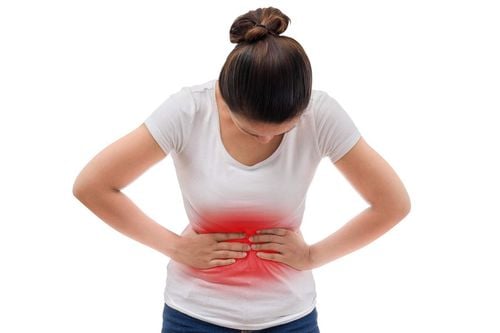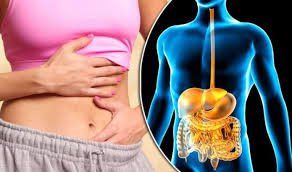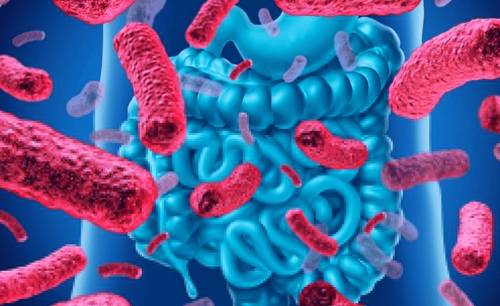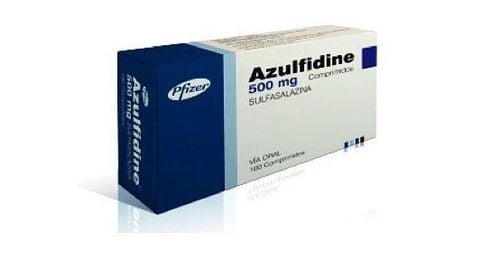This is an automatically translated article.
Post by Master, Doctor Mai Vien Phuong - Gastrointestinal Endoscopy - Department of Medical Examination & Internal Medicine - Vinmec Central Park International General Hospital.Many patients often wonder "can ulcerative colitis be cured". However, there is currently no definitive treatment for ulcerative colitis. Current medical treatments aim to increase the time between flare-ups and make symptoms less severe.
1. Can ulcerative colitis be cured?
“Can inflammatory bowel disease be cured” is a common question of many people. According to research, colitis is an inflammatory bowel disease that mainly affects the lining of the colon. This autoimmune disease has a course of relapse and remission, which means that periods of flare are followed by periods of remission.
Currently, there is no definitive treatment for ulcerative colitis. Current medical treatments aim to increase the time between flare-ups and make symptoms less severe. This may include the use of multiple medications or surgery.
2. New treatments for ulcerative colitis 2.1. Drugs for ulcerative colitis Two new drugs for the treatment of ulcerative colitis have emerged in recent years, biosimilars and Janus kinase (JAK) inhibitors.
2.1.1 Biosimilars Biosimilars is a new type of ulcerative colitis drug. These are copies of the antibodies used in a common ulcerative colitis drug called biologics. Biologics are protein-based therapies that help moderate to severe ulcerative colitis by using antibodies to try to control the inflammatory process.
Biosimilars work in a similar way to biologics. The only difference is that biosimilars are copies of the antibodies used in biologics, rather than the starting drug.
Examples of biosimilars include:
Adalimumab-adbm (Cyltezo) Adalimumab-atto (Amjevita) Infliximab-abda (Renflexis) Infliximab-dyyb (Inflectra) Infliximab-qbtx (Ixifi) 2.1.2. JAK Inhibitors In 2018, the FDA approved a new type of JAK inhibitor for severe ulcerative colitis called tofacitinib (Xeljanz). Tofacitinib is the first oral medication used to treat severe ulcerative colitis. It was previously approved for the treatment of rheumatoid arthritis and psoriatic arthritis.
Xeljanz works by blocking the JAK enzyme to help control inflammation. Unlike other combination therapies, this drug is not used with immunosuppressants or biologics.
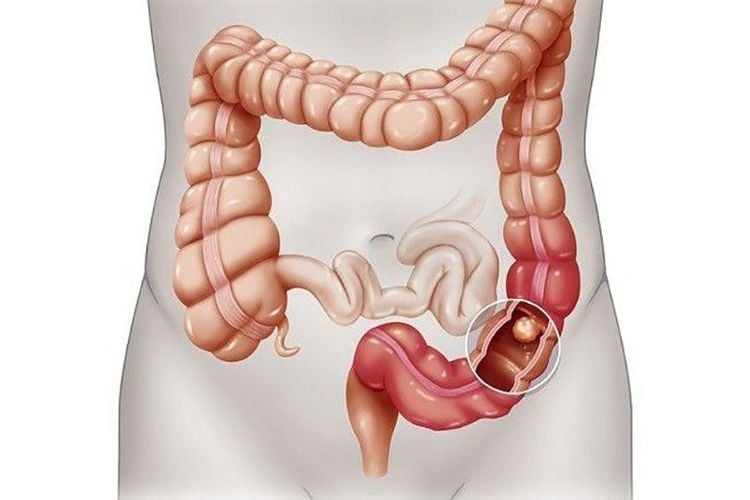
2.2. Prospective Therapies In addition to drugs, researchers are looking at the possibility of other treatments to help prevent and treat gastrointestinal inflammation caused by ulcerative colitis.
Clinical trials are also underway in the following emerging treatments:
Stem cell therapy, which can help reset the immune system to reduce inflammation and lead to tissue repair Stool transplantation ( also known as fecal transplant), which involves transplanting healthy stool from a donor to help restore a healthy gut microbiome Morphine can help reduce inflammation throughout the body, including inflammation in the colon. related to ulcerative colitis. 3. Current Treatments for Ulcerative Colitis Current treatment for ulcerative colitis includes a combination of medication or corrective surgery.
Medications for ulcerative colitis include:
Corticosteroid Aminosalicylate (5-ASA) Immunomodulatory Surgery for ulcerative colitis:
It is estimated that up to one third of people develop ulcerative colitis surgery will eventually be needed. Symptoms commonly associated with ulcerative colitis—such as cramps, bloody diarrhea, and inflammatory bowel disease—can be stopped with surgery. A total colectomy (removal of the entire colon) will completely stop the symptoms of ulcerative colitis. However, total ablation has been associated with other side effects. Instead, a partial colonectomy is performed, where only the diseased part of the colon is removed. Of course, surgery isn't for everyone. Partial or total resection is usually reserved for people with severe ulcerative colitis. Partial or complete resection of the colon:
In a total resection, the entire large intestine is removed. Although this is the only real cure for ulcerative colitis, it can reduce quality of life. In a partial resection, the colorectal surgeon removes the diseased area of the colon with a portion of healthy tissue on either side. When possible, the remaining two ends of the large intestine are surgically reattached, reconnecting the digestive system. When this cannot be done, the intestines are moved to the abdominal wall and waste is removed from the body in an opening pouch of the ileum or colon. With modern surgical techniques, it is possible to reconnect the remaining bowel to the anus, either during the initial surgical resection or after a period of healing. Urgent (emergency) surgery:
While surgery is usually delayed until ulcerative colitis becomes severe or dysplastic changes predispose to cancer, some people may require emergency colectomy because the risk of retaining the diseased bowel is too great. People with ulcerative colitis may need emergency surgery if they experience toxic megacolon, uncontrolled bleeding in the large intestine, perforation of the colon (colon perforation) Emergency surgery poses many risks. more risks and complications. It is also more likely that patients who undergo emergency surgery will temporarily have an ileostomy or colectomy.
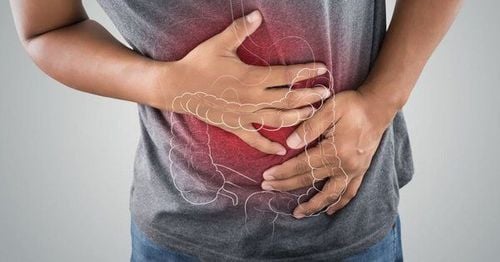
One of the complications of surgery is that the pouch can become inflamed, causing diarrhea, dehydration, and fever. This is called pouchitis and can be treated with a prolonged course of antibiotics.
The other major complication of bowel resection is small bowel obstruction. First, small bowel obstruction is treated with intravenous fluids and bowel rest (nasogastric tube suction can be used to decompress). However, severe small bowel obstruction may need to be treated with surgery.
Although surgery can cure the gastrointestinal symptoms of ulcerative colitis, surgery can not always cure other affected sites, patients will suffer some complications after surgery , the result of a long bowel resection. Sometimes, people with ulcerative colitis experience inflammation of the eyes, skin, or joints. These types of inflammation can persist even after the bowel has been completely removed. Although this is uncommon, it is something to consider before surgery.
In short, “is ulcerative colitis curable” the answer is no, but new medications can help reduce the number of flare-ups, thereby increasing your quality of life. However, when ulcerative colitis is overactive, surgery may be required to help correct the underlying inflammation.
Please dial HOTLINE for more information or register for an appointment HERE. Download MyVinmec app to make appointments faster and to manage your bookings easily.
References:Food and Drug Administration. (2018). FDA approves new treatment for treatment to severe active ulcerative colitis [Press release]. fda.gov/news-events/press-announcements/fda-approves-new-treatment-moderately-severely-active-ulcerative-colitis Ilias A, et al. (2018). Biosimilars in ulcerative colitis: When and for who? DOI: 10.1016/j.bpg.2018.05.003 Medication options for ulcerative colitis. (n.d.). crohnscolitisfoundation.org/what-is-ulcerative-colitis/medication Park JR, et al. (2015). Primary care of the patients with inflammatory bowel disease. DOI: 10.1016/j.mcna.2015.05.009 Ulcerative colitis treatment options. (n.d.). crohnscolitisfoundation.org/what-is-ulcerative-colitis/treatment-options





